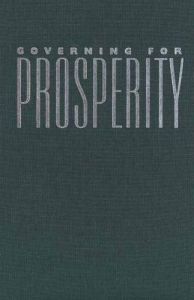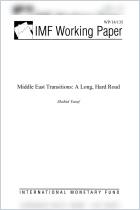Join getAbstract to access the summary!

Join getAbstract to access the summary!
Bruce Bueno De Mesquita and Hilton L. Root
Governing for Prosperity
Yale UP, 2000
What's inside?
If you believe that democracy isn’t necessarily a plus for a nation’s economy and that just a little dictatorship might be good for business, this book says you’re right.
Recommendation
Why do some nations thrive while others seem trapped in a cycle of poverty, instability and corruption? The 14 contributors to this anthology agree on one answer to this question: the rule of law. While the developed West spends billions of dollars promoting democracy in developing nations, the authors suggest that democracy itself does not bring about prosperity. In terms of economic growth, stability and predictability are more important than democracy, they argue. As evidence, they contrast wealthy authoritarian regimes like Singapore with poor and corrupt democracies like India. Some readers might find the implications of such conclusions alarming. That’s all the more reason to read this book, which getAbstract recommends to anyone with an interest in economic development, public policy and the global political order.
Summary
About the Authors
Bruce Bueno de Mesquita is on the faculty of Stanford University’s Hoover Institution on War, Revolution and Peace. He is the author or editor of The War Trap, War and Reason and European Community Decision Making. Hilton L. Root is a senior fellow at Santa Monica, California’s Milken Institute.




















Comment on this summary